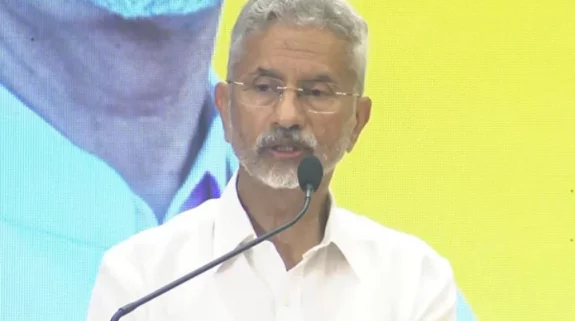China’s much-vaunted tech industry, which contributes nearly 40 percent of its GDP, is being kneecapped by Chinese President Xi Jinping. Bloomberg reports that an estimated $1.5 trillion in stock market value has been wiped out due to his crackdown on some of China’s biggest internet companies.
Even as Beijing scrambles to control its inflated real estate sector, reduction in value of big tech companies is a sign that there are troubling times ahead for the Chinese economy. Manufacturing could be impacted as these problems have now compounded into an energy crisis that has led to power blackouts. While the effect on markets elsewhere is still unclear, the cascading Chinese crises has led capital to seek refuge in its neighbouring country, India. Since August this year, it can be seen that FDI flows into Indian debt as well as equity have increased due to Beijing's actions. Funds diverted from China to India have led start-up funding by global PE and VC investors to hit record levels, according to a report by Businessline.
While other global markets have begun declining due to fears about inflation, the Indian market has been an out-performer for the past several months.
Investors are growing increasingly leery of China. This isn't surprising, since news about China’s tech crackdown has not let up after Beijing abruptly suspended the $34 billion initial public offering (IPO) of digital finance platform Ant Group last November, according to a report by NPR.
Imposing harsh new strictures on online private tutoring and video gaming, China has also declared cryptocurrencies as illegal. New rules governing data collection and use, industry-wide changes and anti-monopoly legislations have been put in place to curb the growth of tech companies. Financial Times reports that food delivery platform Meituan has been fined $1 billion for anticompetitive behaviour, ride-hailing company DiDi Chuxing has been restricted from accepting new users and Ant Group has been called upon to separate its payment and personal finance businesses by regulators who've taken a heavy hand to tech giants.
Zhang Yiming, the prominent founder of TikTok, recently escaped into early retirement amid mounting pressure. Until the picture clears, investors have little option but to look elsewhere: those wanting to diversify from the developed markets have set their sights upon India.
Venture capital has seen the most rapid investor shift. Investments in Indian start-ups rose from $1.6 billion in June to nearly $8 billion in July, as the tech crackdown came to a head this summer, according to another report by Bloomberg.
During the same period, capital going to Chinese start-ups plummeted from $17.3 billion to $4.8 billion. The shift is even more appreciable when one considers that Chinese start-up investments were around 10 times during the first three months of 2021. Equally impressive is the fact that this dramatic shift was the first time since 2013 that the value of venture deals in India exceeded the value of those in China. A New York-based company, Tiger Global Management, which is part hedge fund, part private equity firm, held investments about $8.6 billion in public in addition to 36 private Chinese companies. According to publicly disclosed data, this is the highest exposure to Chinese companies among major U.S. hedge funds. The firm has been shifting capital toward India after suffering significant losses in China, according to a report by Tech Crunch.
25 Indian start-ups in social networks, finance, education, and food have received funding from it in 2021. Japan’s SoftBank Group, recently announced suspension of further investments in China until the effects of the crackdown play out. Hence, Tiger is by no means alone.
On the other hand, Softbank expects to invest $4 billion in India by the end of 2021, making it one of the biggest years for its investments in India. For yet another criterion, India is also far outperforming China in freshly minted so-called unicorns, private companies whose valuations exceed $1 billion. India has been attracting investors as well in the field of public equities. Nikkei Asia reports that while the CSI 300 Index—which tracks 300 large Chinese companies—is down 6 percent over this year, the BSE SENSEX is up 26 percent so far over the same period.
India, which has long been a less popular destination for foreign capital is now experiencing a reversal of fortune with investor priorities shifting from China’s bigger and faster-growing market to India’s. Among a population expected to exceed China’s by 2026, India has more than 900 million mobile phone users anticipated by 2023 and is the world’s second largest digital market. The pandemic and life under lockdown have changed the country’s addiction to cash, a major barrier in capitalizing its digital potential. Use of the Unified Payments Interface mobile app, which allows for seamless digital payments and integrates multiple bank accounts has almost doubled from 12 billion to 22 billion transactions between April 2020 and 2021, according to another report by Businessline. Chinese tech crackdown has come at an opportune time, coinciding with the need to serve this increasing digital population.
Also Read: Imperial College London has multiple ties with Chinese military specialists




















